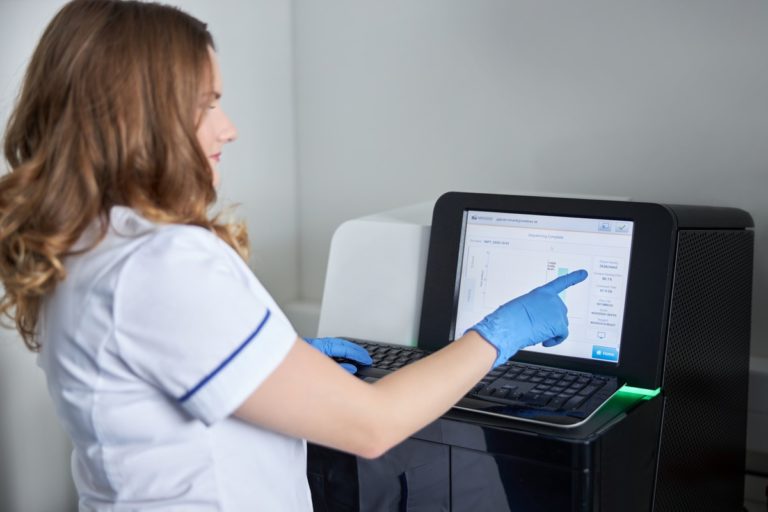About the project
| The name of the project | Research into progressive diagnostic methods for COVID-19 and biomarkers enabling early detection of individuals at increased risk of severe disease |
|---|---|
| Acronym | PROMEDICOV-19 |
| Project code | 313011ATA2 |
| Co-financed by | The project is co-financed by the European Union |
| The program | Operational Program Integrated Infrastructure |
| Partner | Slovak University of Technology in Bratislava - Faculty of Chemical and Food Technology (STU-FCHPT) |
| Provider | Managing authority: Ministry of Transport and Construction of the Slovak Republic Intermediate body: Ministry of Education, Science, Research and Sport of the Slovak Republic and Research Agency |
| Call code | OPII-VA/DP/2020/9.2-01 |
|---|---|
| Beneficiary | MEDIREX GROUP ACADEMY n.o. |
| Registered office | Novozámocká 1/67, 949 05 Nitra |
| Organisation ID | 37 986 805 |
| Total eligible expenses for the implementation of project activities | 2 103 522,80 € |
| The amount of NRFS provided | 1 998 346,66 € |
| Project implementation period | 10/2020 – 06/2023 |
| Location of project implementation | Slovak Republic/Nitra Region/Nitra |
Slovak Republic/Bratislava Region/Bratislava I/Bratislava - Old Town | |
Slovak Republic/Košice Region/Košice I/ Košice - Ťahanovce, Magnezitárska 2098/2 c |
The PROMEDICOV-19 project
The aim of the project is to find a strong-priority solution during the COVID-19 pandemic: in particular to build a national independent, optimized, standardized and validated system in which the key components could be used, or possibly obtained in express time and in a practically unlimited quantity. Both the whole system and its components will be set up as mutually independent, enabling updates and modifications in cases where this is necessary. Moreover, they will allow usage in other areas of research (de novo metagenomic sequencing and associated data analysis, tools for designing multiplex RT-qPCRs, protocols for validation of diagnostic kits on clinical samples, certification of diagnostic kits) and in projects with similar orientation in the field of applied research and development.

Interesting facts about the project
A unique design
In addition to the unique design, validation and possible certification of a new diagnostic kit or the creation of specific procedures and tools for bioinformatic evaluation of metagenomic data, the original components of the project will include in-house optimization and standardization of the preparation of key components of the diagnostic method related to the effort to ensure their unlimited nationwide availability.
Among other things, the ambition of the project team will be the development of original enzymes ( by using the genome mining approach in the databases), which should offer the possibility of enzyme patent protection in cooperation with the project partner STU-FCHPT.
Automation
The system will include components of state-of-the-art automation allowing processing of the samples in a high-throughput mode crucial for planning of diagnostics at the population level.
The project output will not be limited to the system itself but in the pilot phase, it will also include preparation and validation of a comprehensive diagnostic process and reagent kit enabling targeted diagnosis of acute SARS-CoV-2 virus infection, while the key enzymes of the reagent kit will be prepared domestically which will offer an almost unlimited quantity, thus preventing lack of the key components in the case of increasing requirements for massive diagnosing of the population.
Potential modification
Both the whole system and its components will be set up as mutually independent, enabling updates and modification in cases where this is necessary. Moreover, they will allow usage in other areas of research and research projects with similar orientation in the field of applied research and development.
The goals of the project are very timely and up-to-date
Following the ongoing global outbreak of the COVID-19 pandemic and with respect to the potential long-term need to identify individuals at an acute phase of the infection, the project’s objectives address the current burning issues: The lack of and qualitative diversity of medical devices and assessment kits at different levels of laboratory testing of the individuals with suspected infection, as well as the absence of a standardized protocol to ensure correct laboratory diagnosis in terms of standard laboratory procedures (e.g. with respect to defined sensitivity and specificity of various components of the diagnostic process) have left a negative impact on the real implementation and routine diagnosis of individuals infected with SARS-CoV-2.
A universal system
The project aims to develop a virtually universal system, applicable not only for the ongoing pandemic, but also in case of emergence of a new infectious agent. The scope of the implemented system envisages a combination of state-of-the-art as well as established and proven clinical diagnostic procedures.
Uniqueness of the project
Project objective is to develop a (universal) system of early and rapid detection, identification and diagnosis of new infectious diseases with pandemic potential, implemented in its pilot phase in direct connection with the ongoing pandemic of COVID-19. The project is unique as it combines original knowledge of excellent independent research and development with the high potential of its clinical application.
